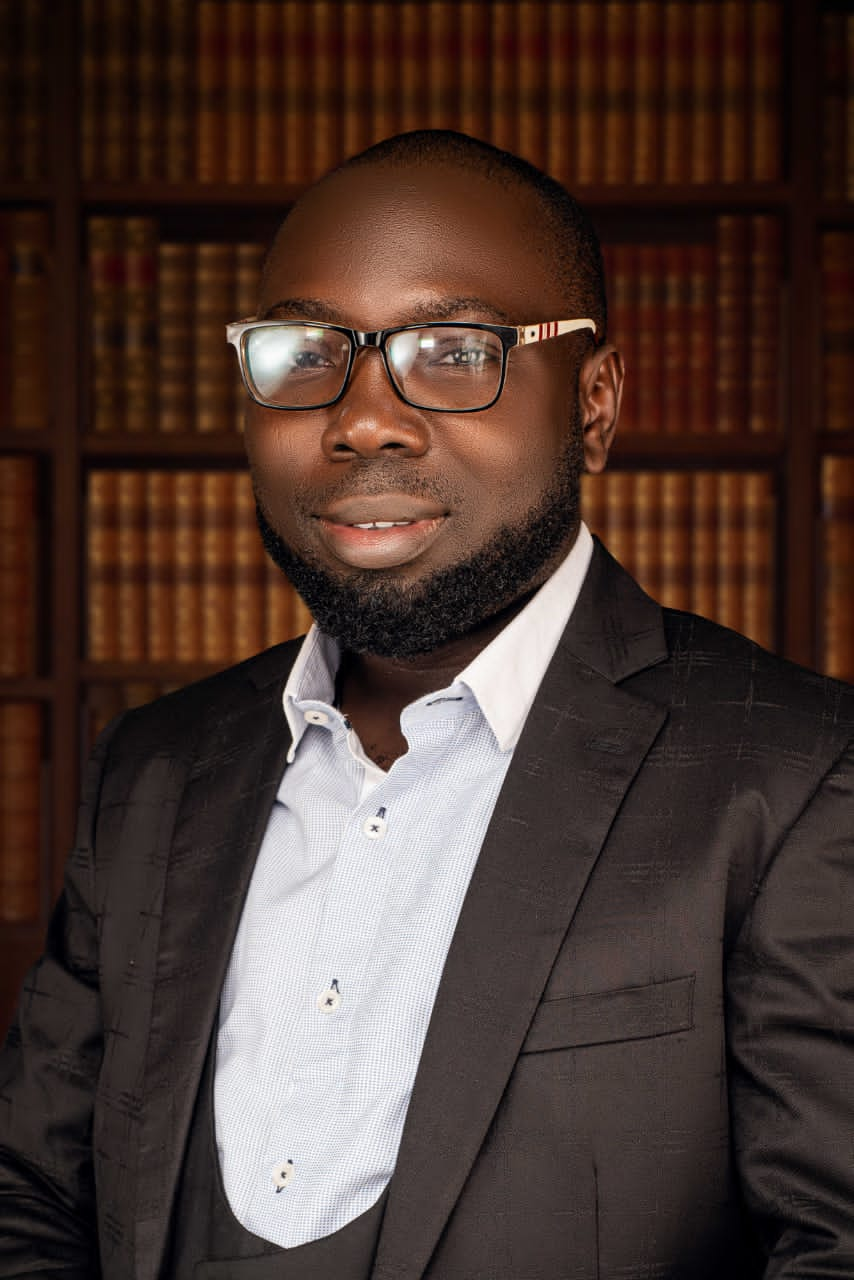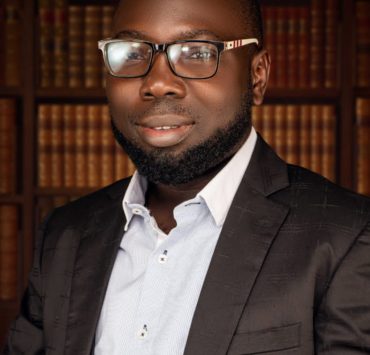Uba v Ozigbo: On Locus Standi of a Candidate to Challenge a Primary Election He Failed to Contest

Lawyard is a legal media and services platform that provides…
Courtesy: Moruff O. Balogun, Esq.
Citation: (2022) 10 NWLR PT. 1839 AT 431.
PARTIES IN FULL:
SENATOR UGOCHUKWU UBA
V.
1. VALENTINE OZIGBO
2. INDEPENDENT NATIONAL ELECTORAL COMMISSION (INEC).
3. PEOPLE DEMOCRATIC PARTY [PDP]
Summary of facts:
By an originating summons dated 5th July 2021 and filed same date, the appellant contended that his faction of the Peoples Democratic Party conducted a primary election on 26th June 2021 at Paul University, Awka, Anambra State, pursuant to the judgment of the High Court of the Federal Capital Territory, Abuja, delivered on 19th June 2021 by Honourable Justice O. A. Adeniyi in suit No. HC/CV/774/2021. The appellant contended that the primary election by that faction of Peoples Democratic Party produced him as the winner of the primary election.
The appellant further contended that the governorship primary election conducted by the National Executive Committee of the Peoples Democratic Party (3d respondent) at the Professor Dora Akunyili Women Development Centre, Awka, on the 26th June 2021 under the Chairmanship of Comrade Philip Shuaibu (Deputy Governor of Edo State), in which the 1st respondent won the majority of lawful votes cast and was duly nominated and elected as the candidate of the 3rd respondent (P.D.P.) and flag bearer for the governorship election scheduled for the 6th of November 2021 by the 2nd respondent (INEC), was conducted in disobedience to the Judgment of the High Court of the Federal Capital Territory, Abuja delivered by Honourable Justice O. A. Adeniyi on 9th June 2021 in suit No. HC/CV/774/2021.
Based on the foregoing, the appellant sought the determination of the questions on the originating summons and prayed the High Court for a number of declaratory and other mandatory reliefs in his favour as the validly nominated candidate of the 3rd respondent.
The 1st respondent raised preliminary objection to the jurisdiction of the court to entertain the matter and the locus standi of the appellant to institute the action. The trial court heard and dismissed all preliminary issues raised.
Irked by the said judgment of the trial court, the 1st respondent appealed against same to the Court of Appeal. The Court of Appeal allowed the appeal and set aside the judgment of the trial court which validated the primary election conducted by the 3rd respondent and certified the 1st respondent as the validly nominated candidate of the 3rd respondent for the governorship election slated for Anambra State on 6th November 2021.
Dissatisfied with the judgment of the Court of Appeal, the appellant appealed to the Supreme Court.
In resolving the appeal, the Supreme Court considered section 87(9) of the Electoral Act, 2010 (as amended) which states thus:
87(9) “Notwithstanding the provisions of this Act, or rules of a Political Party, an Aspirant who complains that any of the provisions of this Act and the guidelines of a political party has not been complied with in the selection or nomination of a candidate of a political party for election may apply to the Federal High Court or the High Court of a State or the FCT for redress.”
Held: Unanimously dismissing the appeal, the Supreme Court held that where a candidate who bought a nomination form, was screened and cleared to participate in the primaries but failed to actually participate, such a candidate has lost the right to be heard in a court of law under section 87(9) of the Electoral Act.
The following issues were raised and determined by the Supreme Court:
On whether a candidate who bought a nomination form, screened and cleared to participate in the primaries but failed to actually participate has locus to challenge the outcome of such primaries.
It is not the business of any court to select or nominate candidates for any political party for elections. The nomination of a candidate to contest an election is the sole responsibility of the political party concerned. The courts do not have jurisdiction to decide who should be sponsored by a political party as a candidate in an election. That position has been the law and has not changed because the issue of selection and /or nomination, of a candidate for an election is strictly within the domestic jurisdiction or power of political parties.
Notwithstanding the position, however, section 87(9) of the Electoral Act 2010 (as amended) has created a narrow compass of sort for an aggrieved candidate who took part in a primary election to select a candidate for an election. Under the said provision, where a political party nominates a candidate for an election contrary to its own constitution, rules and guidelines, a dissatisfied candidate who actually participated in the primaries is empowered to approach the courts enumerated therein for redress.
In such situation, the courts have jurisdiction to examine and interpret relevant legislations to see if the political party fully complied with relevant laws and guidelines governing the nomination of its candidates. But before a candidate for the primaries can invoke section 87(9) of the Electoral Act, 2010 (as amended), and thus be imbued with locus standi or the ground to sue, he must have been screened and cleared by his political party and actually participated in the said primaries.
Where a candidate who bought nomination form, was screened and cleared to participate in the primaries but failed to actually participate, such a candidate has lost the right to be heard in a court of law under section 87(9) of the Electoral Act. It was crystal clear that the Court of Appeal was right in holding that the appellant was not an aspirant in the 3rd respondent’s primary election held at Professor Dora Akunyili Women Development Centre, Awka, and therefore lacked the locus standi to invoke section 87(9) of the Electoral Act 2010 (as amended).
Per OKORO, J.S.C. stated as follows:
“The appellant herein obtained a judgment by Adeniyi. J of the High Court of the Federal Capital Territory delivered on 9th June, 2021. Armed with that judgment, the appellant proceeded to conduct an illegal and factional primary election at Saint Paul’s University, Awka on the date aforementioned. The appellant claimed he won the said primary election which did not have the blessing of the National Working Committee of the 3rd respondent. It also did not have the supervisory coverage of INEC, the 2nd respondent herein.“Contrariwise, even the appellant acknowledged that the 1st respondent participated in the primary election conducted at the Professor Dora Akunyili Women Development Centre, Awka on the same date in which the 1st respondent emerged winner.
“The 1st respondent and the evidence show a consistency that it was the National Executive Committee of the PDP (3rd Respondent) that organized the governorship primary election in which the 1st respondent emerged victorious and was duly nominated and returned as the governorship candidate of the PDP for the Anambra State Governorship election scheduled for 6th November, 2021. However, the appellant had contended that this primary election organized at the instance of the National Executive Committee of the 3rd respondent (PDP), was conducted in disobedience to the judgment of the High Court of the Federal Capital Territory, Abuja.
“My Lords, I note that from the affidavit of 30 paragraphs in support of the appellant’s originating summons, at the trial court, the appellant did not in any way whatsoever state that he participated in the primary election conducted at the instance of the National Executive Committee of the 3rd respondent on 26th June, 2021 held at Professor Dora Akunyili Women Development Centre Awka. In fact, he described the said primary election as “illegal” and “unlawful”.
“At the lower court, the appellant, contrary to his case at the trial court decided to use his brief of argument to embark on a summersault by claiming that he took part in the primary election conducted by the 3rd respondent at Professor Dora Akunyili Women Development Centre, Awka. Having regard to the circumstances of this case, can it be said that the appellant took part in the 3rd respondent’s primary election held on 26th June, 2021 at Professor Dora Akunyili Women Development Centre, Awka, so as to imbue him with locus standi to challenge the said election as prescribed in section 87(9) of the Electoral Act, 2010 (as amended)?”
On who can challenge conduct of primaries of political party
By section 87(9) of the Electoral Act, 2010 (as amended), notwithstanding the provisions of the Act, or rules of a political party, an aspirant who complains that any of the provisions of the Act and the guidelines of a political party has not been complied with in the selection or nomination of a candidate of a political party for election may apply to the Federal High Court or the High Court of a State or the Federal Capital Territory for redress.
The above provision of the Electoral Act is very clear and unambiguous.
For a candidate’s complaint to come within the narrow compass of section 87 (9) of the Electoral Act, the aspirant must show to the court that the National Executive Committee of the political party conducted the primary election he is challenging and that he was an aspirant not by mouth but that he took part or participated in the vexed primary election. An aspirant, who, though he was cleared to participate in the primary election, decides to stage a factional primary election, does so at his peril as he is on a frolic of his own.
An aspirant must have participated at the primary elections conducted and supervised by the National Executive Committee of the political party before such a candidate will have locus standi or legal standing to challenge the outcome of such primaries pursuant to section 87 (a) of the Electoral Act, 2010 (as amended). Not only that, a participant at a primary not endorsed by the National Executive Committee but endorsed only by the State Executive of the party has no right of audience in court.
Thus, for an aspirant to invoke the provisions of section 87(9) of the Electoral Act 2010 (as amended), the primary election which he complains of must be conducted by the National Executive Committee of the political party, and not by the State Executive of the party. In the instant case, the only recognized primary election was the one conducted by the 3rd respondent, which held at the Professor Dora Akunyili Women Development Centre, Awka.
Since the appellant did not participate in that primary election, he was not a candidate in the said primary election and therefore lacked locus standi to challenge its outcome.
On whether state executive of a political party can conduct party primaries –
A State executive of a political party has no vires to conduct party primaries. It is only the National Executive Committee of the party that is recognized as the proper organ of the party saddled with the responsibility of conducting party primaries. In the instant case, the appellant clearly stated in the affidavit in support of his originating summons that he took part in the primary election held at St. Paul University, Awka, in obedience to the judgment of Adeniyi, J. of the Federal Capital Territory High Court and that the said election was conducted by Sir Chukwudi Umeaba who authored and signed the alleged result of the primary election. Sir Chukwudi Umeaba was said to be the leader of the State Executive of the 3rd respondent. That appellant emerged winner of that contraption he called party primary election. Not having been conducted by the National Executive Committee of the 3rd respondent, the primary election held at St. Paul University on 26th June 2021 in which the appellant took part was unknown to law and was a nullity. The assemblage at St. Paul University was nothing other than an illegal and an unlawful gathering of party delinquents. The outcome therefore was a sham and a farce.
On need for a party to be consistent in staling his case at the trial court up to the appellate court
A party must be consistent in stating his case at the trial court up to the appellate court. A party is not allowed to present different cases before each hierarchy of court as he likes. Put differently, a party is not allowed in the presentation of his case before the court to approbate and reprobate. In the instant case, the appellant at the Court of Appeal made a very unprofessional somersault, by claiming that he took part in the primary election conducted by the 3rd respondent at Professor Dora Akunyili Women Development Centre, Awka.
The Court of Appeal made far-reaching findings in the matter and concluded that the appellant did not take part in the primary election conducted at Professor Dora Akunyili Women Development Centre, Awka.
A party is not permitted to change his case on appeal since an appeal is a continuation of the case he made at the trial court. Simply put, a party will not be allowed to change his position as he moves through the steps of the court. In the instant case, the appellant described the primaries conducted by the third respondent as “illegal and “unlawful,” but he changed his tune on appeal and claimed that he actually took part in the said primaries. The assertion that he participated in the said primaries came up for the first time in the appellant’s brief he filed at the Court of Appeal, and since he made out a different case at the trial court, the rug had, certainly, been pulled out from under his feet, and the Court of Appeal was, therefore, standing on firm ground when it dismissed his appeal. In the circumstances of the case, it was evident that he lacked the locus standi to invoke section 87(9) of the Electoral Act.
On status and scope of address of counsel and whether can be used to introduce evidence not adduced at trial
The law prohibits counsel from introducing evidence that a party did not offer at the trial. A counsel cannot use his address to the court to introduce evidence which was not adduced by the party during the trial. Such evidence in counsel’s address shall not be used for the resolution of issue in the appeal. Even where such evidence was available but not adduced at the trial of the suit, counsel does not have the province or latitude to introduce it by any stretch of ingenuity in his address.
Courtesy:
Moruff O. Balogun Esq.
Ijebu Ode, Ogun State.
08052871414
09121207712 [WHATSAPP]
Lawyard is a legal media and services platform that provides enlightenment and access to legal services to members of the public (individuals and businesses) while also availing lawyers of needed information on new trends and resources in various areas of practice.















